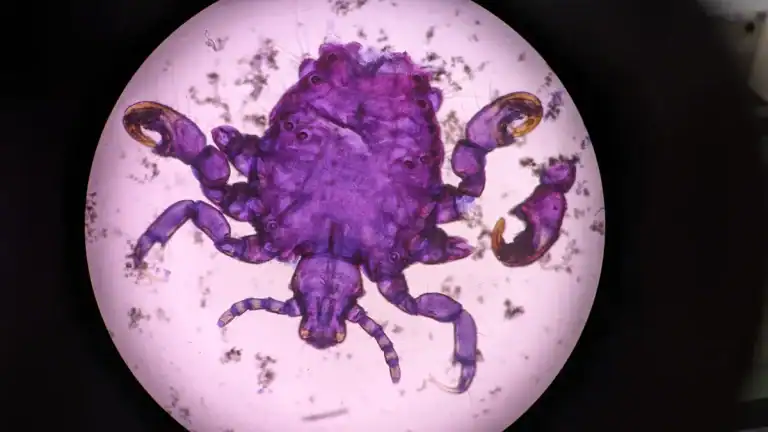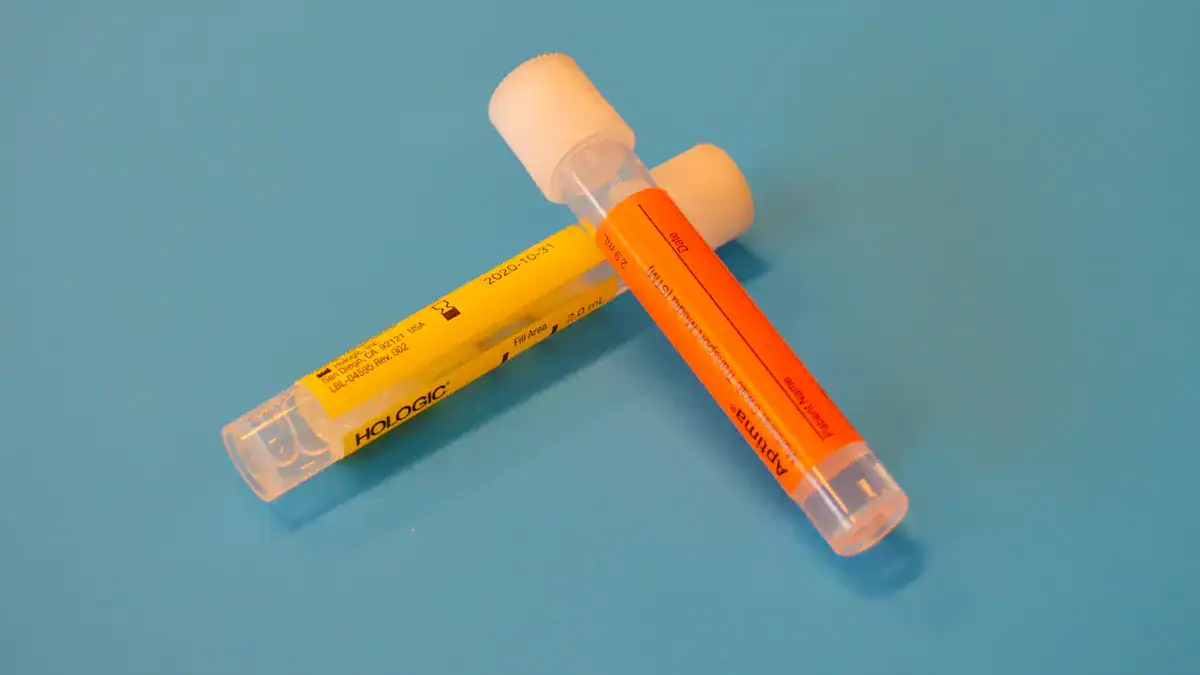
“Is bright yellow pee normal?” You might ask yourself this question. Your urine color offers important clues about your body’s health. It often acts as a direct indicator of your hydration status. Sometimes, bright yellow urine is completely normal. It simply shows your body processes things well. Other times, a very bright yellow hue in your urine can point to less common issues. Understanding your urine helps you monitor your well-being.
Key Takeaways
- Bright yellow pee is usually normal. It often means you are well-hydrated or your body is getting rid of extra vitamins.
- Your pee color shows how much water you drink. Darker pee means you need more water, while very pale pee means you drink enough.
- Some vitamins, especially B vitamins, can make your pee bright yellow. This is normal and happens when your body uses what it needs and removes the rest.
- See a doctor if your bright yellow pee lasts a long time, even after drinking more water. Also, see a doctor if you have other symptoms like pain or a strange smell.
Understanding Urine Color
The Science of Urine’s Hue
Your urine has a yellow color. A pigment called urochrome gives your urine this hue. Urochrome is an end product of protein metabolism. It is the main reason for your urine’s clear yellow color. Traces of other pigments, like urobilin and uroerythrin, also exist in your urine. The chemical makeup of urochrome is a combination of urobilin and urobilinogen, linked with a peptide.
The amount of urochrome in your urine directly affects its color. A higher concentration of urochrome makes your urine darker. A lower concentration results in lighter urine. This means the intensity of your urine color changes with how much water you drink.
Normal Color Variations
Your urine color can vary widely. It ranges from almost clear to a deep amber. This spectrum represents a healthy urine color range. When you are well-hydrated, your urine is often pale yellow urine. This indicates your body has enough fluids. If your urine is very clear, you might be drinking too much water.
When you do not drink enough water, your urine becomes more concentrated. This makes its color appear darker yellow. This change in your urine color is a common sign of dehydration. Understanding these normal variations helps you know what your body needs.
Common Causes of Bright Yellow Pee
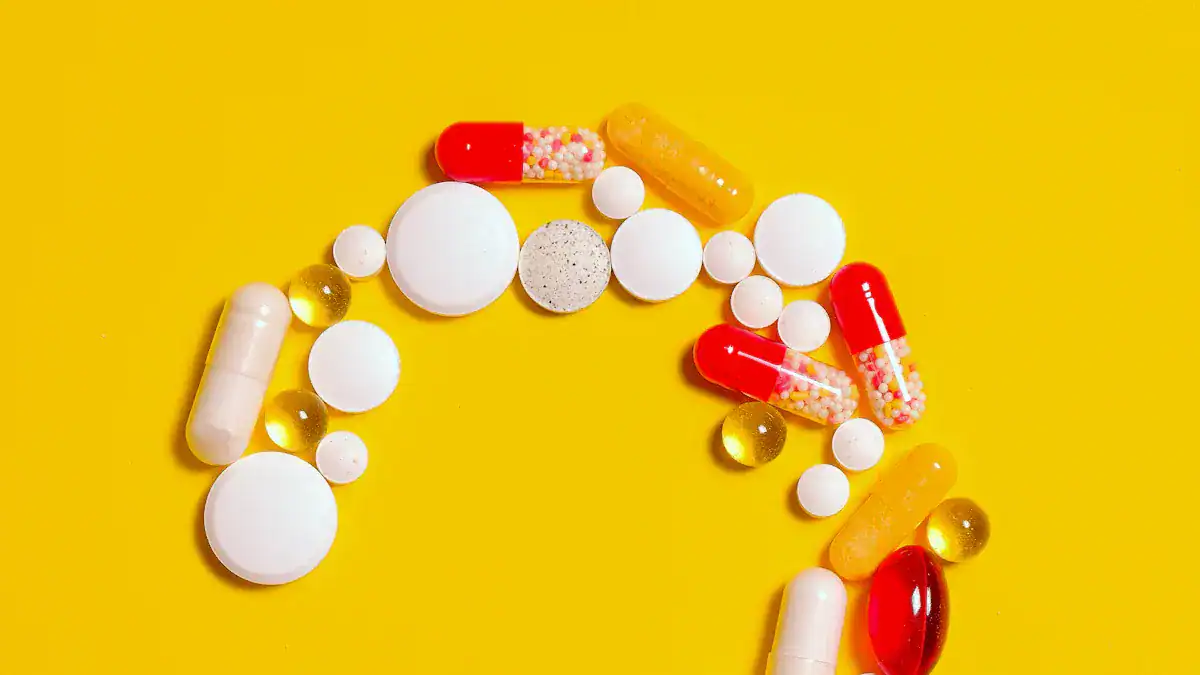
You might wonder about the causes of bright yellow urine. Several common factors can make your body’s waste appear this way. Most of these reasons are harmless.
Hydration Levels
You might notice your pee looks brighter or darker yellow. This often happens because of your hydration levels. When you do not drink enough water, your body tries to save fluid. Your kidneys make your waste more concentrated. This concentration makes your pee appear a deeper, brighter yellow. This is a common sign of dehydration.
To stay well-hydrated, you need to drink enough water throughout the day. The amount you need varies by age and other factors. Here is a general guide for daily water intake:
| Age | Daily Adequate Intake (cups) | Daily Adequate Intake (ounces) |
|---|---|---|
| 1-3 years | 4 | 32 |
| 4-8 years | 5 | 40 |
| 9-13 years | 7-8 | 56-64 |
| 14-18 years | 8-11 | 64-88 |
| Men, 19 and older | 13 | 104 |
| Women, 19 and older | 9 | 72 |
| Pregnant women | 10 | 80 |
| Breastfeeding women | 13 | 104 |
These guidelines are for healthy individuals. Your activity level, climate, and body size can change your needs. About 20% of your total water intake comes from water-rich foods. You can monitor your pee color to check your hydration. Your pee should ideally be light yellow or clear. Dark-colored pee suggests you need to drink more fluids. While pee color helps you understand daily hydration, drinking until your pee is completely clear is not always necessary for optimal health.

Vitamin Supplements
Another common reason for bright yellow urine comes from vitamin supplements. Your body uses vitamins for many important functions. However, you might take in more vitamins than your body needs. This often happens with water-soluble vitamins. Your body does not store these vitamins. It simply flushes out the extra amounts.
Specific B vitamins are well-known for causing bright yellow pee.
- Riboflavin (vitamin B2) often makes your pee fluorescent yellow.
- Excess vitamin B12 can also cause your pee to look yellow or even yellow-orange.
- Folic acid (vitamin B9) supplements can result in orange or bright yellow urine.
When you take supplements with high amounts of these vitamins, your body absorbs what it needs. Then, it eliminates the excess. For example, the fluorescent-yellow color in your pee comes from riboflavin. This riboflavin remains after your body’s needs are met. It shows that your supplement dissolved and your body absorbed the vitamin. The dosage of your B complex directly affects how vibrant your pee color can be. Your individual metabolism also changes how quickly your body processes and clears riboflavin.
Dietary Influences
What you eat can also influence the color of your pee. Certain foods contain natural pigments or high levels of vitamins that affect pee color. For instance, foods rich in vitamin C, like kiwis, bell peppers, and strawberries, can contribute to a brighter yellow hue. Some fortified cereals and breads also contain B vitamins. These can lead to changes in your pee color. While less common for bright yellow, some artificial food dyes can also alter pee color.
Morning Concentration
You might notice your pee is often a brighter yellow first thing in the morning. This is completely normal. Your body processes fluids and waste overnight while you sleep. During this time, you do not drink water. Your kidneys work to concentrate your pee. This process allows you to sleep without needing to urinate frequently. This concentrated sample of pee appears darker or brighter yellow. It shows your kidneys are functioning normally.
When Bright Yellow Urine Signals Concern
You now understand that bright yellow urine often has harmless causes. However, sometimes, your urine color can signal a health concern. You should pay attention to persistent changes or other symptoms.
Persistent Color Changes
You might notice a change in urine color. If your urine stays bright yellow for a long time, even after you drink more water, it could be a sign. This persistence means you should not ignore it. Your body might be telling you something. You should consider if you have changed your diet or supplements. If not, you should talk to a doctor.
Liver or Bile Issues
Your liver plays a vital role in your body. It produces bile. Bile helps digest fats. It also carries waste products, like bilirubin, out of your body. Bilirubin is a yellow pigment. If your liver is not working well, or if your bile ducts are blocked, bilirubin can build up. This buildup can make your urine appear very dark yellow or even brownish. You might also notice your skin or eyes look yellow. This condition is called jaundice. You should seek medical help if you see these signs.
Kidney Health Indicators
Your kidneys are powerful filters. They remove waste products and extra water from your blood. They then turn these into urine. If your kidneys are not working correctly, waste can build up in your body. This can affect the color and concentration of your urine. For example, some forms of kidney disease can lead to unusual urine colors. You might see very pale urine or, conversely, very concentrated urine. A persistent change in your urine color, especially with other symptoms, can indicate kidney problems. You should consult a doctor if you suspect kidney disease.
Other Medical Conditions
Certain other medical conditions can also cause a change in your urine color. You might find that some medications alter your urine’s hue. For instance, certain drugs are known to alter urine color, including turning it shades of yellow. This is usually a harmless side effect. You should check the medication’s information leaflet. If you start a new medication and notice a sudden change in your urine, you should ask your doctor or pharmacist. They can tell you if this is a normal side effect.
Hydration: Your Urine’s Best Friend
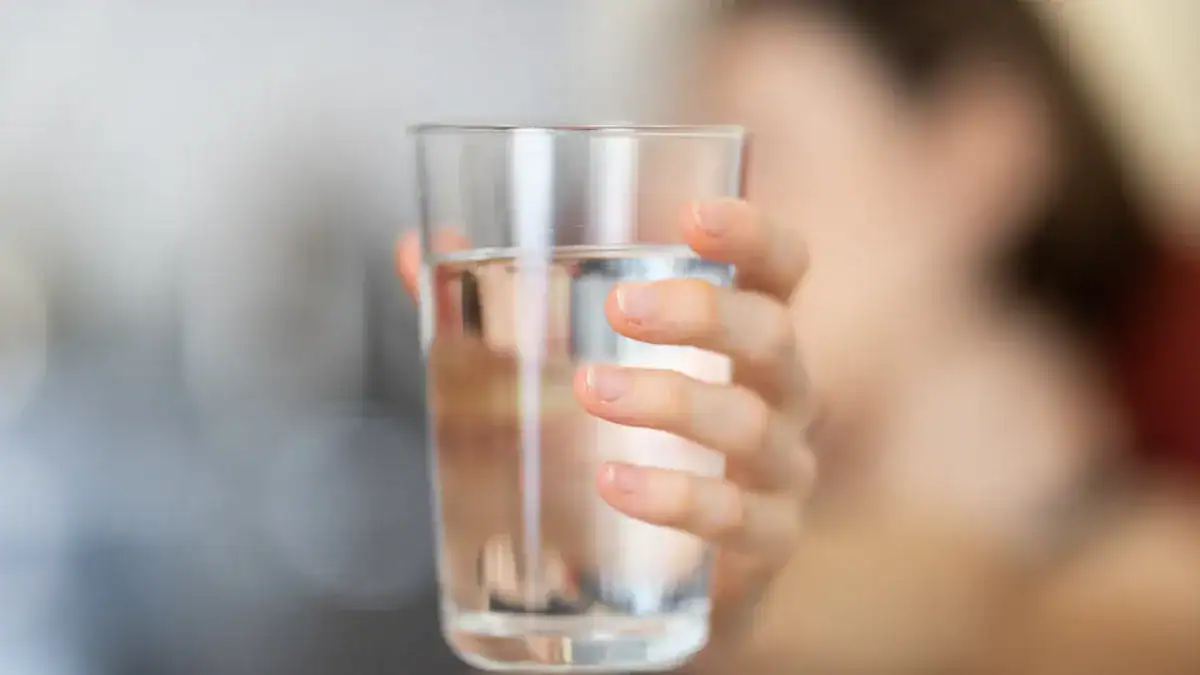
You understand the importance of water for your body. Proper hydration keeps your body working well. It also directly affects your urine color.
Optimal Water Intake
You need to drink enough water every day. This helps your body function. Your daily water needs vary. They depend on your age and activity level. Look at these guidelines for daily fluid intake:
| Organization | Men (Liters/day) | Women (Liters/day) |
|---|---|---|
| Institute of Medicine (2004) | 3.7 | 2.7 |
| World Health Organization (2003) – Sedentary | 2.9 | 2.2 |
| World Health Organization (2003) – Active | 4.5 | 4.5 |
| European Food Safety Authority (2010) | 2.5 | 2.0 |
| National Health and Medical Research Council (2006) | 3.4 | 2.8 |
You can see that active people need more water. Older adults often drink less water. You should aim for consistent intake. This helps maintain a healthy urine color.
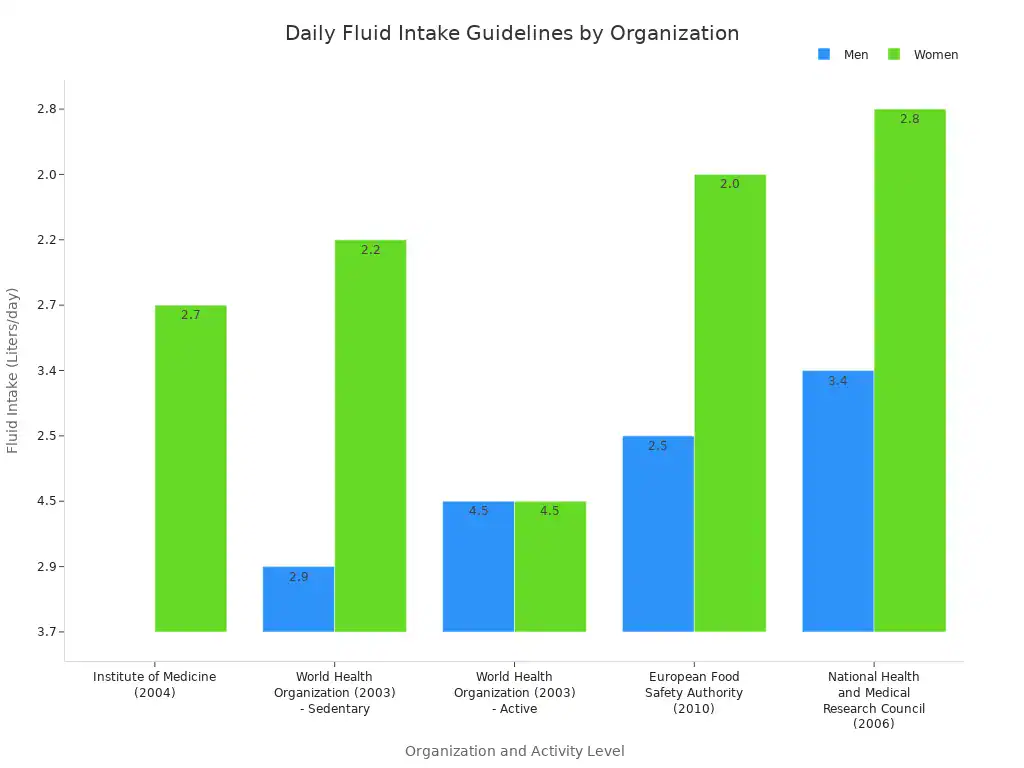
Hydration Strategies
You can make drinking water easier. Try these simple strategies:
- Start and end your day with a cup of water.
- Flavor your water naturally. Add fruits or herbs like lemon or mint.
- Keep a reusable water bottle with you. This reminds you to drink.
- Set reminders on your phone. Drink water regularly throughout the day.
- Replace sugary drinks with water. This improves your health.
- Eat foods high in water content. Lettuce and watermelon are good choices.
Tip: Drink a glass of water hourly during your workday. This helps you meet your fluid goals.
Electrolyte Balance
Electrolytes are vital for your body. They help cells conduct electrical charges. This is important for muscle contraction. Electrolytes also maintain fluid balance. Your body gets electrolytes from food and drinks. Your kidneys filter out excess electrolytes. They then expel them in your urine. Sodium is a key electrolyte. It helps with fluid balance and nutrient absorption. Imbalances can affect kidney function. They can also increase the risk of kidney stones. Proper electrolyte levels help your kidneys filter blood. This produces healthy urine. Adding electrolytes to drinks can improve hydration. This is especially true during exercise. It also helps with rehydration.
When to Seek Medical Advice
You now understand that bright yellow urine often has harmless causes. However, sometimes, your urine color can signal a health concern. You should pay attention to persistent changes or other symptoms.
Persistent Bright Yellow Pee
You might notice a change in your urine color. If your urine stays bright yellow for a long time, even after you drink more water, it could be a sign. This persistence means you should not ignore it. Your body might be telling you something. If you are concerned about your urine’s color or smell, or if its color does not return to a normal shade of yellow within a day, you should contact a doctor.
Accompanying Symptoms
When bright yellow urine appears with other symptoms, you need to pay close attention. Foul-smelling and yellow urine combined with painful urination, frequent urination, or a long-lasting bad smell can indicate a urinary tract infection (UTI). If you experience fever, pain in your side or back, or general discomfort along with changes in your urine, you should contact a doctor. These symptoms suggest a more serious issue.
Changes in Odor or Clarity
Your urine’s smell and clarity also provide clues. Smelly and yellow urine caused by bacteria and fungi in the urinary tract is highly likely associated with a urinary tract infection. Yellow and smelly urine accompanied by painful urination, nocturia (waking up to urinate at night), or lower abdominal pain suggests a urinary tract infection. This can include conditions like gonorrhea, chlamydia, urethritis, cystitis, or pyelonephritis. If your urine becomes cloudy or has a strong, unusual odor, you should contact a doctor.
Medication Effects
Certain medications can change your urine color. Bright yellow urine is frequently a side effect of vitamin B2 supplementation. This occurs as your body absorbs the vitamin. Doctors may recommend riboflavin (vitamin B2) to help prevent or manage conditions such as anemia, migraines, or thyroid conditions. It’s important to consult a doctor before taking any vitamins, minerals, or supplements, even if they are available over-the-counter. Dietary supplements are not regulated by the FDA for safety or effectiveness. Supplements carry a risk of side effects or complications, particularly when taken in high doses. If you start a new medication and notice a sudden change in your urine, you should ask your doctor or pharmacist if this is a normal side effect. This helps you understand when to contact a doctor.
You now know bright yellow pee is often a normal sign. It shows good health or mild dehydration. Your hydration levels and vitamin intake are common, harmless causes. Listen to your body. Pay attention to your urine. If you see persistent bright yellow urine with other symptoms, seek medical advice. Proactive health management helps you stay well. Consult a professional when you have concerns.
FAQ
What does bright yellow pee usually mean?
Bright yellow pee often means you are well-hydrated. It can also show your body is flushing out excess vitamins, especially B vitamins. This is usually a normal and harmless sign.
Do all vitamin supplements make your pee bright yellow?
No, not all vitamin supplements make your pee bright yellow. Water-soluble vitamins, like B2 (riboflavin), B9 (folic acid), and B12, are the main culprits. Your body takes what it needs and then removes the extra.
Can drinking too much water make your pee bright yellow?
Drinking too much water usually makes your pee very pale or clear. Bright yellow pee is more often a sign of concentrated urine due to less water intake or excess vitamins. You should aim for a light yellow color.
When should you see a doctor about bright yellow pee?
You should see a doctor if your bright yellow pee persists, even after you drink more water. Also, seek medical advice if you have other symptoms. These include pain, fever, unusual odor, or cloudy urine.
Tip: Pay attention to your body’s signals. Your urine color is one important clue to your health.


